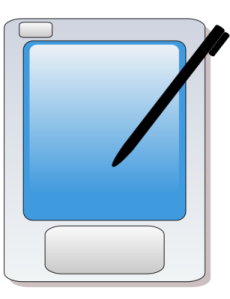 Me Against The [Publishing] World
Me Against The [Publishing] World
One of my promotional strategies for my self-published novels is to make them available as ebooks at as many of the growing number of online vendors and distributors as possible. In short, if there is a place online where you can download or read contemporary fiction, I want my novels to be there.
Naturally, I face competition from the big publishing houses, which are also getting into the ebook game. The advantage that I have over them, I think, is that I can price my novels below their lowest prices. I’m even willing to give my novels away for FREE. How many commercial publishers are willing to do that? Not many, because for them, publishing is a business, first and foremost.
For example, let’s take Stephenie Meyer’s Twilight, which is available at a number of commercial ebook websites, including Amazon’s Kindle Store (for $6.99) and Ebooks.com (for $10.99). Those prices (especially the Ebooks price) are almost the same as the price of a physical copy of the novel. My question is, shouldn’t the cost of an ebook version of a novel be less than the physical copy? With ebooks, publishers can avoid many of the traditional costs of publishing — the costs associated with producing a physical book. With an ebook, you are simply making a digital copy of a file and sending that copy across the Internet to a computer. There are NO manufacturing or distribution costs associated with ebook production. Instead, the $6.99 and $10.99 costs are being split among the websites (Amazon and Ebooks), the author, and the publisher. When I decided to make The Spring available on the Kindle, I wanted to offer it for free, but Amazon required that I offer it for at least $0.99 — Amazon’s cut, so that’s the price I set it at.
It’s Not About The Money
Someone might argue that by pricing my book so low — even offering it for free, when I can — that perhaps I’m giving the impression to potential readers that my book isn’t really worth reading at all. Some might argue that Meyer’s novel in ebook form still costs a lot because it is a valuable commodity (especially at this point in time with a new movie out). My response to that is, What about Project Gutenberg? All of the ebooks available there are available for free. You can download the entire collected works of Shakespeare for nothing. Does that mean that Shakespeare’s plays are worthless? Of course not. We need to get away from this idea that the value of a work of art (whether it is literature or music or film) is tied directly to the amount of money that one must pay in order to possess a copy of that art. The music industry, in particular, has tried to tie the value of a song to its price tag. One of their [failed] arguments against file sharing is that if one acquires a song for free, then that degrades and demeans the artistic process that produced the song in the first place. They argue that without the economic incentive, artists will no longer create music. It’s an absurd argument. Art exists independently from the economic costs and gains that are required to produce it. Human art pre-dates any human economic system, and the desire to create art will exist long after every economic system has been laid to rest.
For me, creative writing has never been about making money. That’s one reason why I don’t feel it’s necessary to prostitute my work out to a publisher. What is most important to me is the act of creation and then sharing that creation with others. Making money is, at best, a secondary concern.
The Problems and Potential of Ebooks
It is economics, in fact, that is slowing the widespread adoption of ebooks and ebook readers. Reading a novel from one’s desktop computer is not an ideal experience, so there are a number of handheld devices (like the Kindle or Sony’s Reader Digital Book) that recreate the portability of the traditional book. I’d love to have one of those devices, but for now they are too expensive, and I don’t like the proprietary software and DRM that the devices force readers to use. An ebook reader ought to be able to open and display any PDF file, just as music players can now open and play any mp3 file.
Fortunately, other devices that weren’t originally intended to be used as ebook readers, can be used in that way. Two examples: Apple’s iPhone (and the iPod Touch) and the Nintendo DS.
Older readers pooh-pooh ebooks and ebook readers, saying that this technology will never catch on, that people will always prefer to read from a physical book. I’m not so sure about that. The “book” may be the “technology” that folks my age and older will always be more comfortable with, but the younger generation, and the generations not yet born, will be more likely to use electronic devices for most, if not all, of their reading. And if ebooks are how my intended audience (young people) are getting their reading material, then that’s where I want to be. And if young people are more willing to go for something that is free than something that costs $10.99, then I’ll offer my work for free. If that’s what the marketplace demands, then that’s what I’ll offer (how’s that for economics?).
Sorry this post is so long. But what about YOU? Do you have an ebook reader? Do you download ebooks? What do you think about the prices that publishers have set? How much longer will the traditional paper-based book exist? Is it on its way towards extinction?